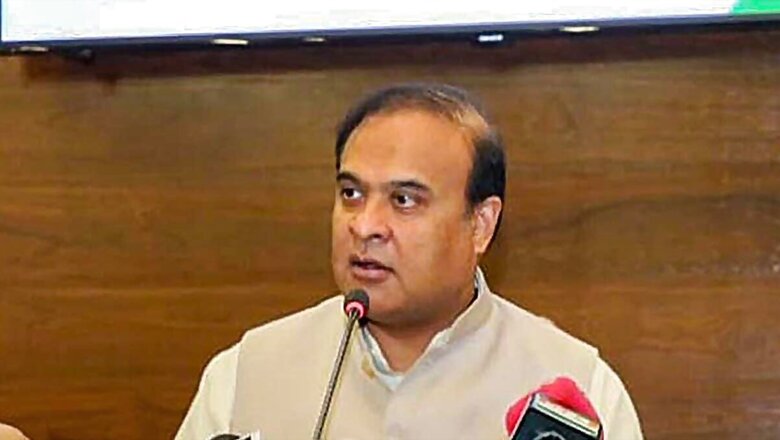
views
Assam Chief Minister Himanta Biswa Sarma on Monday announced that he is aiming to withdraw the controversial Armed Forces (Special Powers) Act (AFSPA) completely from the state by the end of this year.
Speaking at the Commandants Conference, Sarma said, “We are aiming at withdrawing AFSPA completely from Assam by the end of 2023. AFSPA may be lifted from the entire state by November.”
“This will facilitate the replacement of the CAPFs by Assam Police Battalions. However the presence of CAPFs are required by law shall be in place,” he added.
As of now, eight districts in Assam come under the AFSPA Act of 1958. In this, security forces can conduct operations and arrest anyone without any warrant. The act also gives immunity from arrest and prosecution to the security forces if they shoot someone dead.
Highlights of HCM Dr @himantabiswa‘s speech at the Commandants Conference today. pic.twitter.com/xtsEkFKRWB— Chief Minister Assam (@CMOfficeAssam) May 22, 2023
The Armed Forces (Special Powers) Act, 1958 (AFSPA) was extended for six months from October 1 with the continuation of the ‘Disturbed Area’ tag for Tinsukia, Dibrugarh, Charaideo, Sivasagar, Jorhat, Golaghat, Karbi Anglong and Dima Hasao districts along with Lakhipur sub-division of Cachar in the Barak valley.
The government had withdrawn the controversial law from West Karbi Anglong district as the situation “considerably improved” there.
In October last year, Sarma had said that his government was considering withdrawing AFSPA from two more locations in the state.
What is AFSPA?
Promulgated by the British, the law was enacted in response to the Quit India movement in 1942. Prime Minister Jawaharlal Nehru decided to retain the Act after Independence. In 1958, the AFSPA was notified as an Act.
A note on AFSPA on the Union Home Ministry website says that its enactment in 1958 was necessitated by the law order situation in the northeastern states where state governments and local authorities were found to be “incapable” of dealing with disturbances in the region.
Under AFSPA, armed forces are defined as any military troops and “the air forces operating as land forces, and includes other armed forces of the Union so operating”. More info here
Officers stipulated under AFSPA can arrest without warrant any person in connection with the commission of a cognisable offence or even on the “reasonable suspicion… that he has committed or is about to commit a cognisable offence”. The Act allows such officers to “use such force as may be necessary to effect the arrest”.
AFSPA also permits officers — based on the “opinion that it is necessary so to do” — to “destroy” any structure or shelter from which armed attacks are made or are likely to be made or are attempted to be made.
Armed forces are also allowed to “enter and search without warrant any premises”. Section 6 of the Act grants immunity from prosecution for actions carried out in “disturbed areas” by security forces.
“No prosecution, suit or other legal proceedings shall be instituted, except with the previous sanction of the Central Government, against any person in respect of anything done or purported to be done in exercise of the powers conferred by this Act,” it says.




















Comments
0 comment